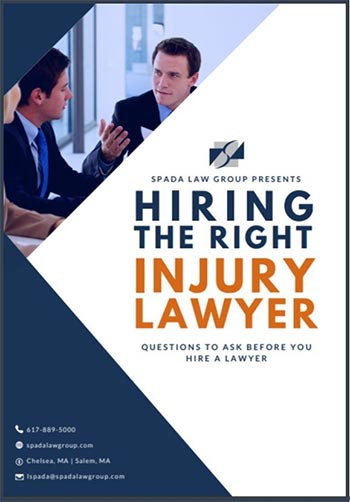
Skiing and snowboarding have always been popular but with pent-up demand caused by COVID these past few years, ski seasons have seen unprecedented crowds on the slopes. With more people on the slopes, we see many more collisions and injuries. While the worst of the COVID pandemic is a few years behind us now, the crowds on the slopes have continued to increase and injuries are still very common. In 2023, about 18.5 Million people went skiing, which was a 4% increase from 2022. About 9 Million people in the United States went snowboarding in 2023, which was the highest recorded number since 2010.
You might be wondering what your legal rights are if someone negligently injures you while on the slopes. We have the answers you need.
People often believe that if they’re injured while skiing, snowboarding, or participating in a winter sport, they’re out of luck when it comes to filing an injury claim. That is not always the case.
Injured on the Slopes? Skiing and Snowboarding Accidents and Your Rights
If another skier or snowboarder on the slopes injures you, you might have a valid personal injury case in Massachusetts.
Skiing and Snowboarding Injury Data
Each year, about 600,000 people in the United States suffer a skiing-related injury. With an estimated 18.5 million people skiing each year, that means about 3% of people who ski suffer a skiing injury each year.
Snowboarders are 10 times more likely to be injured, as snowboarders have an injury rate of 30%. With about 9 million snowboarders, that means about 2.7 Million snowboarders are hurt each year on the slopes.
The most common types of skiing and snowboarding injures are knee and head injuries. Up to 40% of all ski-related injuries are knee injuries, such as ligament tears; and about 20% of all ski injuries are head injuries from falls or collisions with other skiers or snowboarders. This is why wearing a helmet is so important, as it can reduce the risk of head injuries by up to 60%.
More than 90% of all skiing and snowboarding fatalities in the 2021-2022 season were men and most deaths occurred on intermediate or difficult terrain.
Skiing and Snowboarding Injury Claims in Massachusetts
People often believe that if they’re injured while skiing, snowboarding, or participating in a winter sport, they’re out of luck when it comes to filing an injury claim.
It can be very difficult to successfully pursue an injury claim against the actual ski mountain or resort itself, so that’s likely where the misconception comes from. State laws in New Hampshire, Maine and Vermont make it very difficult (but not impossible) to sue a ski resort but that doesn't mean you can’t successfully bring a claim against another skier or boarder who caused your injuries.
Skiing, snowboarding, and winter sports are activities that come with certain inherent risks – such as typical falls, variations in terrain, snow and ice, and the possibility of bare patches of ground. Due to the inherent risks of winter sports, ski operators typically have minimal liability for injuries that happen at ski resorts. Under Massachusetts law, Ski operators generally will not be liable for a skier’s or snowboarder’s collision with an object or another skier.
Since there are a few situations where a ski resort may be held liable for your injuries, it’s always a good idea to consult with an injury attorney before you make any decisions on the merits of your case. You don’t have to sue a ski resort, however. You can also bring an injury case against the individual who caused the accident and is responsible for your injury.
Liability Waivers and Release Waivers: Are They Enforceable in Massachusetts?
The short answer is maybe. The most important takeaway, however, is to always consult an injury attorney even if you signed a waiver or release because you may still have a valid case. Let an attorney help you know your rights rather than assuming you don’t have any options.
Many ski mountains will have you sign waivers before hitting the slopes, which is another reason why people often think they have no possible injury claim. You may not remember signing a waiver if you have a season pass, such as The Epic Pass, but you did when you purchased the pass online or in person. A waiver or release form alone, however, doesn’t automatically bar you from your right to bring an injury lawsuit but it certainly makes it much more difficult and in some cases, it may make it impossible to bring a suit against a ski resort.
For a waiver or release of liability to be enforceable in Massachusetts, the form must use clear and unambiguous language that explicitly informs the skier or snowboarder of the rights they are waiving. If the language in the waiver is vague or overly broad, a court might decide that the waiver is invalid and cannot be enforced. The waiver also must be fair. If a court finds the waiver is unfair, it may also decide that it is invalid.
Some common possible exceptions to a waiver or release being valid and enforceable are: gross negligence or recklessness and minors. Typically, waivers cannot protect a ski or snowboard resort from liability for gross negligence, recklessness, or intentional misconduct. When it comes to minors, any waiver signed on behalf of a minor is typically unenforceable. This is because courts will generally prioritize the wellbeing and welfare of the child over the terms of the waiver.
Courts in Massachusetts are also sensitive to public policy considerations and may be sympathetic to individuals.
Liability waivers and release waivers are enforceable under specific circumstances in Massachusetts, but they are not an absolute shield against lawsuits. You may still be able to bring a valid claim against a ski resort even if you signed a waiver. This is particularly true if a minor was injured.
Collided with Another Skier or Boarder? You May Have an Injury Claim in Massachusetts
While ski and snowboard mountains have minimal liability for injuries on the slopes, each skier and snowboarder has a duty to keep others around them safe. If another skier or snowboarder negligently caused your injury, no waiver will prevent you from being able to sue the negligent person.
Common ski injuries include head injuries such as concussions or traumatic brain injuries, neck or back injuries, broken bones, or even paralysis or death. If you were injured at a ski resort, it’s always wise to consult with an injury attorney who will investigate the details of your potential case and inform you of your rights and options.
When someone behaves negligently on the slopes, and their actions lead to colliding with you or causing you an injury, you likely have a strong case against them.
According to Massachusetts Law, all Skiers have the Following Duties:
-
Skiers are responsible for maintaining control of their speed and course at all times.
-
Skiers have the specific duty to avoid any collision with another skier, person or object on the hill below them.
-
In the event of a collision, the law states that the skier or person who caused the collision will be solely responsible. The ski operator will not be responsible.
-
Skiers are responsible for staying away from vehicles, towers, poles and any other equipment.
-
Skiers cannot throw or drop any objects from a recreational tramway such as a chair lift.
-
Skiers cannot engage in any conduct while on a recreational tramway that may injure someone.
-
If a skier skis in any area that is not an open slope or trail, they will be responsible for any injuries they suffer.
It is assumed that all skiers know their own range of ability when it comes to their skiing skill level and that each skier is aware of the inherent and unavoidable risks involved in skiing. By participating in skiing, a skier assumes responsibility for any injury caused by an inherent risk of skiing.
When a skier fails to act in accordance with any of the duties above, and you are injured as a result, you likely have a valid injury case.
Imagine some teens are skiing and snowboarding together, and they decide to race recklessly. They are flying down the hill faster than is appropriate given the conditions and faster than they’re able to control. Suppose they collide with another person and injure them. In that case, they could be found legally liable for your injuries because they were not conforming to their responsibility to maintain control of their speed and course while going down the hill.
What Should I Do if Injured by Another Skier in Massachusetts?
If you are able, get the name and contact information of the person who caused your injuries. This information is critically important to your ability to have a successful injury case. You can’t sue who you can’t identify.
Most of the time, when you’re injured by someone at a ski resort the person’s homeowner’s insurance will step in to provide the person your claim is against with an attorney and the financial coverage to compensate you for your damages if you are successful. Homeowner’s insurance policies extend coverage to anyone who lives in the home with the homeowner or insurance policyholder, so it covers minors and anyone else who lives in the home.
You can learn more about this in our blog about what skiers, snowboarders, and homeowner's insurance have in common.
Injured While Skiing in New England? Boston Ski Injury Attorney Offers FREE Consultations
If you were injured in a collision with another skier or snowboarder, or due to someone else’s carelessness on the mountain while you were skiing or snowboarding, give us a call.
Our injury attorneys will listen to your story and we will advise you of, and fight for, your rights.
We have offices in Chelsea, Lawrence, Newburyport, Peabody, and Springfield, but we proudly serve the entire state and can meet with you remotely from the comfort of your own home. Contact us for a free consultation to see how we can help you get the recovery you deserve after your injury.



